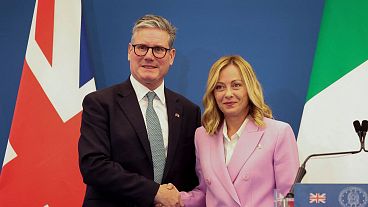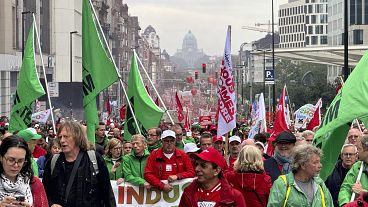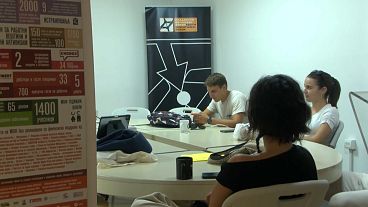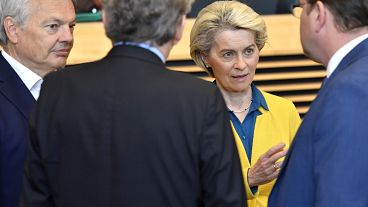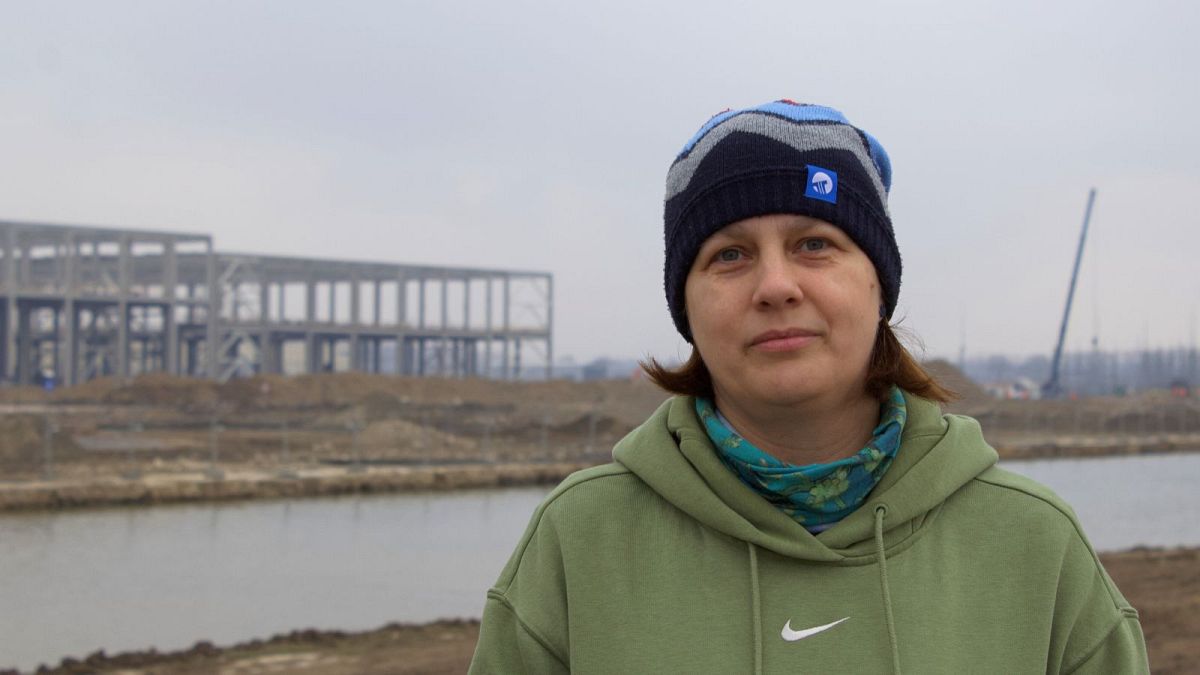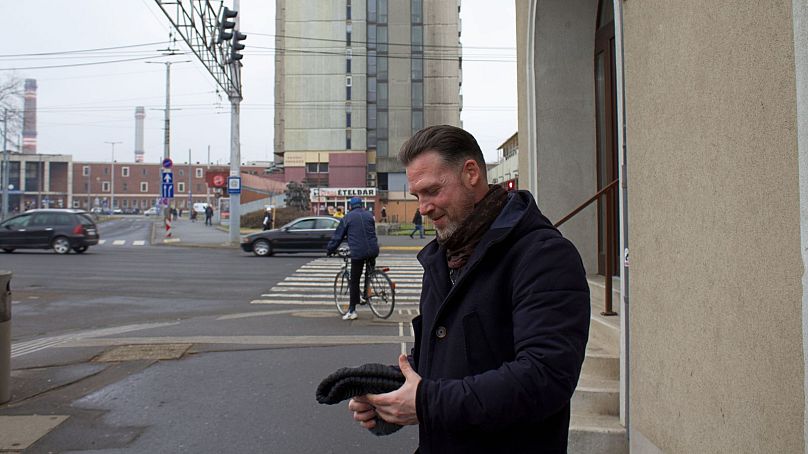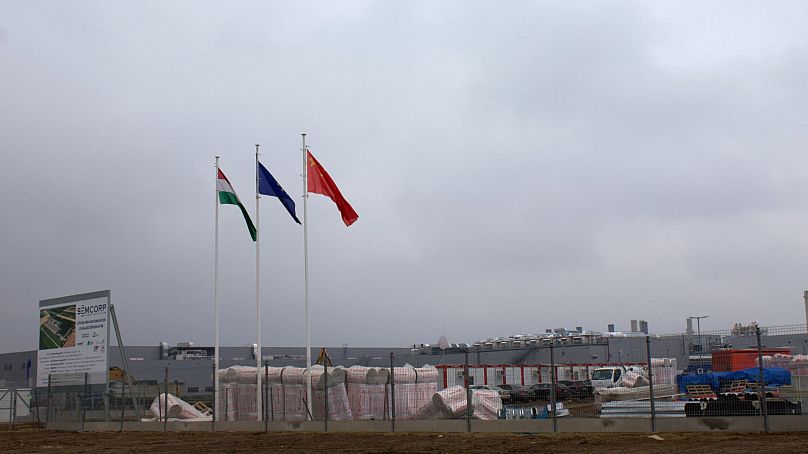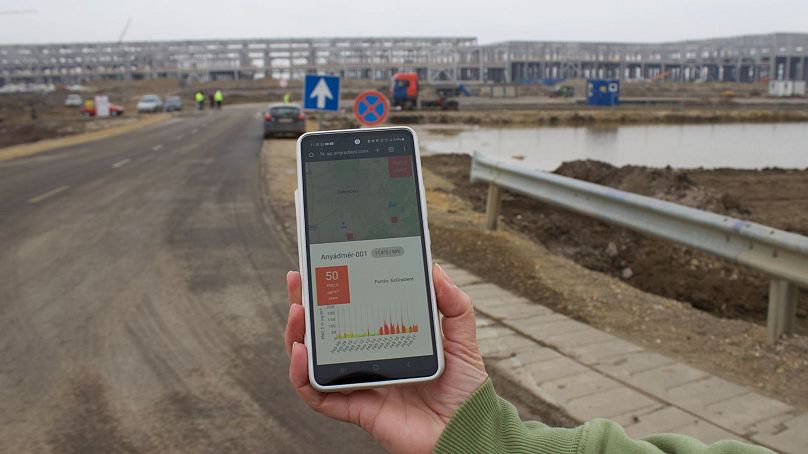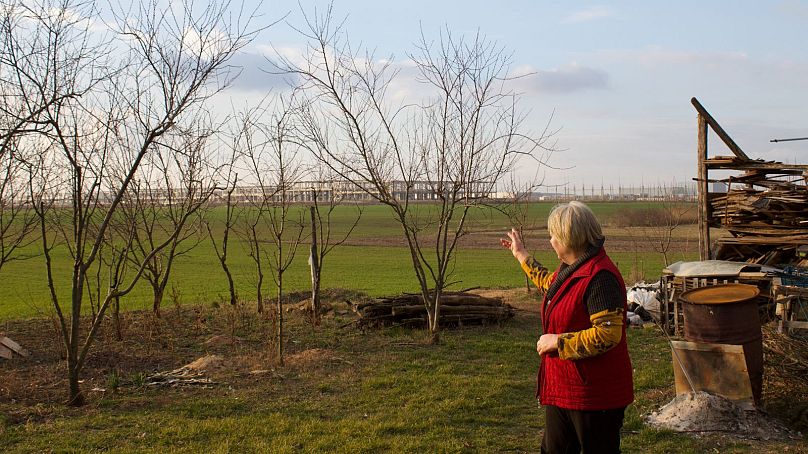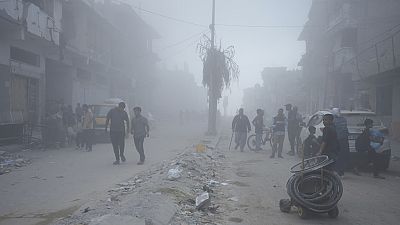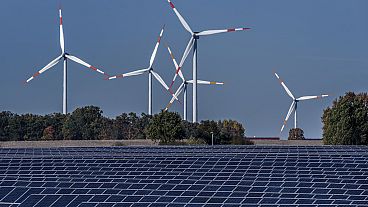People are continuing to resist the factory through street protests, court cases and toxic air monitoring.
A Chinese battery plant near Debrecen city in Hungary keeps growing despite objections from locals and experts.
“We are not against progress,” says resident László Nándor Horváth, a full-time father and activist. “But we would prefer another direction.”
He isn’t alone in opposing the construction of Chinese Contemporary Amperex Technology Co. Limited’s (CATL) lithium-ion battery manufacturing plant.
When CATL announced the construction of Europe’s largest battery plant in August 2022, the response in Debrecen was overwhelmingly negative. According to a survey by independent pollster 21 Kutatóközpont last year, 62 per cent of the 200,000-strong population were opposed to the factory.
Their concerns about the 550-acre site include environmental pollution, resource exploitation and foreign influence.
Civilians and opposition political parties organised protests, some with thousands in attendance. Horváth, who lives only two kilometres from the construction site with his disabled son, sued CATL in March 2023 and won: the court recalled CATL's licence for disaster management last November.
Despite the outrage, construction continues and CATL is even planning to expand, according to Civil Forum Debrecen Association. The local activist group spotted plans for an additional assembly line in an August 2024 notice published by Debrecen municipal bureau.
According to CATL’s plans, production will start in 2025.
Why are foreign companies building battery factories in Hungary?
Elsewhere in Hungary, South Korean multinational Samsung, China’s Huayou Cobalt and Japan’s TOYO INK are among the companies building or expanding 35 sites related to battery production.
China alone has invested €16 billion in Hungary, much of this in factories like CATL’s, becoming the country’s largest investor.
Aiming to overtake Germany and the US in battery manufacturing capacity, the Hungarian government funded the production by over €2.5 billion in the form of subsidies and infrastructure development, according to an estimate by the independent outlet G7.
“The Hungarian government thought that battery production is the key to economic development, where they can invest without risk, and the supply will grow increasingly and continuously,” Dóra Győrffy, economist and university professor, tells Euronews Green.
“But this doesn’t make sense. For example, there will always be demand for bananas and oranges as well, but that doesn’t mean that we need to grow them in Hungary, as the climate is not appropriate for it.”
For the companies, Hungary is an attractive country to invest in due to the government’s financial help, weak regulations, and an entry to the European market, Győrffy explains.
“If a country doesn’t have an advantage in energy production,” adds Attila Holoda, managing director of independent advisory firm Aurora Energy, “it’s a strategic mistake to bring in energy-consuming industries like battery-production.”
Aside from energy, the CATL factory will require water and a workforce, both scarce in the area, he explains. CATL is already ferrying in workers from Asia, and will require almost 10,000 workers in total for production according to the Chinese company.
Locals complain of air pollution and fear a ‘battery wasteland’
The nearest town to the construction, Mikepércs, already experiences occasional power cuts because of the construction.
A sleepy suburb of Debrecen, it has a population of 5,000. Attracted by affordable homes, scores of young families moved there in the last decade, explains Éva Kozma, head of activist group Mikepércs Mothers for the Environment Association (MIAKÖ).
She lives in Mikapércs with her three children and her elderly parents. “And I want to die here too,” she says.
One factory which will cater to CATL’s battery production started test operations in February 2024. Plumes from this single plant produce enough toxins to trigger the air quality monitors set up by MIAKÖ.
The devices measure pollution from fine particulates (PM2.5), responsible for nearly 4 million deaths globally according to the US-based National Center for Biotechnology Information. Near the factory, it can reach harmful levels at 50µg/m3, double the EU recommendation.
A chemist by education who makes organic soaps, Kozma now works with the windows closed.
“We understand that electric vehicles are environmentally friendly,” Kozma says. “But they won’t do us much good if CATL turns our neighbourhood into a battery wasteland.”
Little is known about what substances CATL will use during the production, assembly and disassembly of the batteries, Kozma points out. At least one impact study fails to list any materials, citing trade secrets.
NGOs say greater transparency is needed
Greenpeace Hungary supports the transition away from petrol-fuelled cars, Gergely Simon, a chemical expert at the NGO, says.
“However, the way batteries are currently being manufactured in Hungary is by no means an acceptable or green mode of transition,” he adds, largely due to a lack of transparency.
Greenpeace has detected the presence of toxic solvent NMP, which can cause harm to unborn foetus or stillbirth, in the groundwater near other Hungarian plants. The Hungarian government, however, currently classifies these as toxic solvents, not foetal-harmful substances, which the EU regulation would allow in much smaller quantities, Simon explains.
“There are a lot of grey areas because it is a new industry,” Simon says. “The Hungarian authorities are taking advantage, so to speak, thus creating Hungary's competitive advantage from the fact that they interpret regulations, or the lack of regulations, creatively.”
'No grain or corn will ever grow here'
Only a few hundred metres from the plant’s gate, Judit Szemán used to grow organic vegetables for sale. Now, the three generations of her family often wake during the night from the light or the noise of the construction.
Of the 1,500 hectares of fertile land surrounding them, at least 700 have been transformed into industrial areas, she says. “No grain or corn will ever grow here. Nothing.”
Last year, Szemán sued CATL for violation of environmental standards. The case is adjourned for the summer holiday, and they might have to reevaluate it after the news of expansion, Szemán’s son, László Szőnyi explained.
Investors have knocked on their door multiple times, inquiring about the price of their property, but they are determined to stay - at least until the court order is delivered. According to Szemán, if her concerns are dismissed, it will be a sign to Chinese companies that they can expand in Hungary without scrutiny.
“I’m afraid that we are ringing an alarm bell in vain. This will have an effect on Hungary, and the EU,” Szemán says.
What does CATL say?
CATL, which has 12 operating production sites around the world, responds that it does not have any plans to expand its Debrecen plant.
“As a global leader of new energy innovative technologies, we are expanding our global footprint to speed up e-mobility and energy transition in Europe and the world,” the company says in a statement to Euronews Green.
It says that closed production technology at its Debrecen site will ensure it meets all national and EU environmental regulations and emission limits, which will be continuously monitored in cooperation with the authorities.
“Proper filtering and cleaning equipment and technical solutions will prevent leaks,” it adds. “The production activity is carried out in closed, properly insulated buildings, so soil and groundwater pollution are not expected from the activity.”

